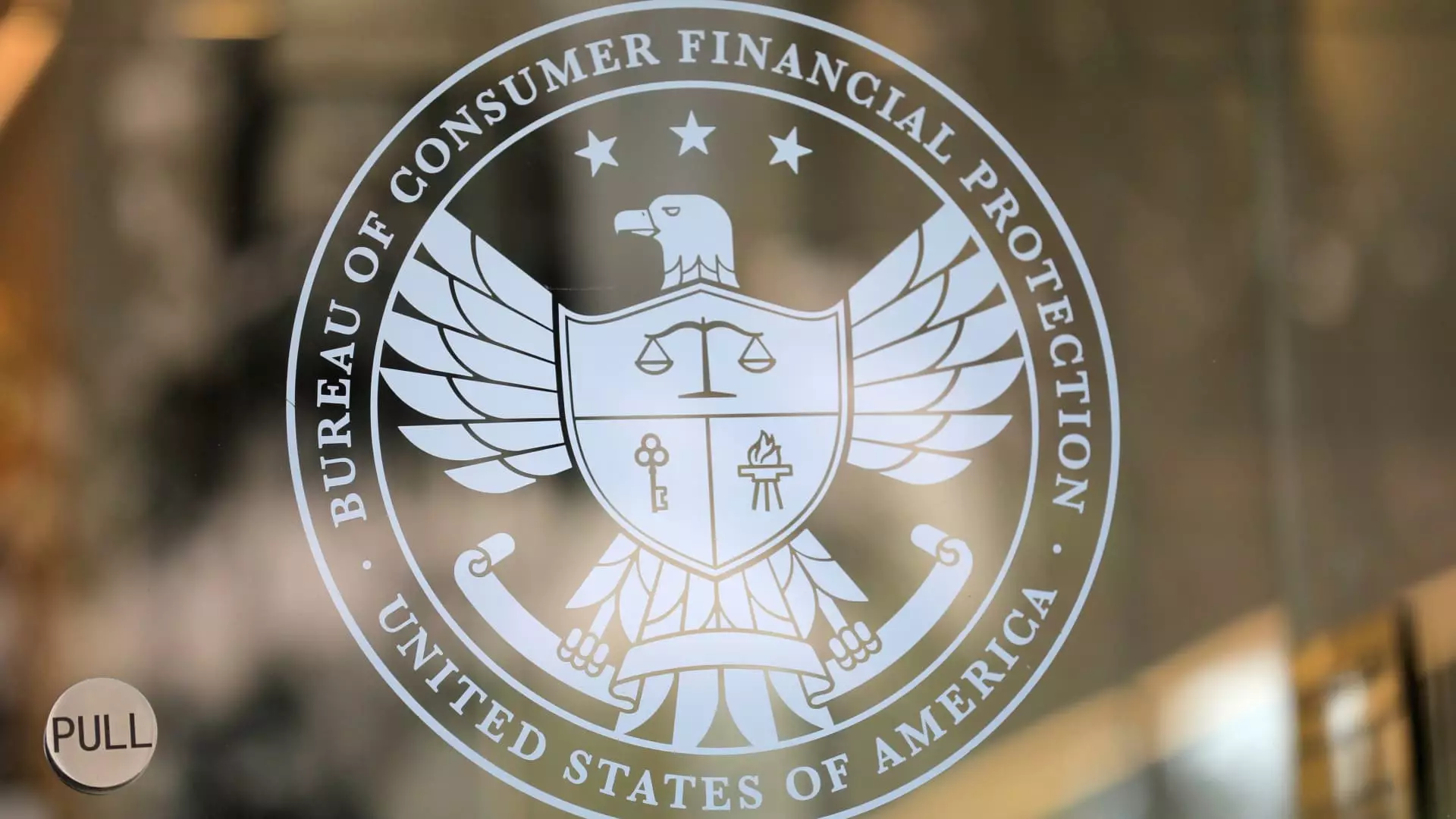The Consumer Financial Protection Bureau (CFPB) was launched with the noble aim of safeguarding consumers from the predatory practices of financial institutions, particularly in the wake of the 2008 financial crisis. However, the agency has recently found itself under siege by political forces, particularly under the Trump administration, which perceives its presence as an expensive government overreach. The attempts to cripple this essential watchdog present a grim reality for consumers and highlight the urgent need for financial regulatory clarity in an ever-evolving market.
A Political Target
From its inception, the CFPB has functioned as a bulwark against financial malfeasance. Yet, its existence has been challenged from the top, demonstrating how political motivations can endanger critical consumer protections. Early in February, the Trump administration initiated efforts to suspend the agency’s operations, setting off a chain of legal battles that have left its future in limbo. This isn’t just a bureaucratic squabble; it represents a potential existential crisis for consumer protections in finance, which have already suffered under the pressures of political maneuvering.
A crucial federal judge’s ruling temporarily blocked the termination of nearly 1,500 of the CFPB’s 1,700 employees. This decision indicates the judiciary’s recognition of the bureau’s importance in supervising financial institutions and enforcing consumer lending laws. What is disconcerting is that the agency’s fate seems to hang by a thread because the powers that be want to redefine its scope and purpose. Mark Paoletta, the acting chief legal officer, has previously suggested limiting the personnel to around 200, which raises legitimate concerns about the agency’s capacity to effectively carry out its statutory mandates.
The Uncertain Future of Consumer Protections
With every passing day, the CFPB is faced with mounting uncertainty about its operational capabilities. Phil Goldfeder, CEO of the American Fintech Council, elucidates the challenges faced by innovators in financial services and points to a broader issue: the murky regulatory framework. Lack of clarity creates a chaotic environment for consumers and businesses alike, leading to a market where transparency—an essential component of trust—is in jeopardy.
The repercussions of diminished CFPB authority could reverberate throughout the financial landscape. Recent developments indicate that changes could significantly weaken consumer protections like capping bank overdraft fees. While such measures were slated to take effect soon, Congress is now weighing actions to overturn them, thus returning these so-called “service fees” to the wild west of unchecked rates. Consumers, already struggling under the weight of rising living costs, face potential additional financial burdens as a result.
The Risk of Inaction
The current administration’s approach is not merely about budget cuts; it risks unravelling years of progress in consumer protections. Katz from Capital Alpha Partners warns that even a modest cut in personnel can radically change the course of how the agency operates. Ignoring this reality could create a scenario where vital consumer protections that once helped countless individuals are rendered moot. When the CFPB drops cases against companies like JPMorgan Chase or Bank of America, as has been reported, it sends a chilling message that no one is held accountable for consumer rights violations.
Shifting focus to nonbank financial services, lawmakers appear ready to give a free pass to certain fintech firms while leaving others under stringent regulations. This not only creates an uneven playing field but also opens the door for potential consumer exploitation. Techniques to enforce compliance among payment apps, such as those used by PayPal and Venmo, are not just lost but actively undermined by legislative actions.
The Consumer Complaint Database: A Troubling Reality
One of the cornerstones of the CFPB’s functionality is its consumer complaint database, which receives approximately 25,000 complaints weekly—totaling more than 1.6 million complaints in 2023 alone. However, the effectiveness of this database hangs in the balance. Without robust enforcement mechanisms, as noted by Adam Rust from the Consumer Federation of America, complaint responses could stagnate in a bureaucratic limbo, leading consumers to feel hopeless in their pursuit of resolution.
When consumers submit complaints, they expect action and accountability. However, as the uncertain operational framework unfolds, many may soon find their pleas echoing into a void. The real danger here lies in creating a scenario where citizens feel disillusioned and, in many cases, powerless, eroding trust in institutions meant to protect their interests.
The Fight for a Transparent Future
As political maneuvering continues, 23 state attorneys general have stood up against efforts to defund the CFPB. This coalition highlights the importance of maintaining a robust agency that can serve consumer interests above partisan agendas. The future of the CFPB is not just about the engineers managing consumer finance; it represents a critical battleground where consumer rights are at risk of being sidelined by political gamesmanship.
It’s time for advocates and consumers alike to rally for a transparent and accountable financial regulatory framework. The implications of a weakened CFPB reach far beyond politicians—they are a pressing matter of equity and justice for millions of everyday consumers. In the fight for a fair financial landscape, every voice matters, and now is the time to make it heard.

